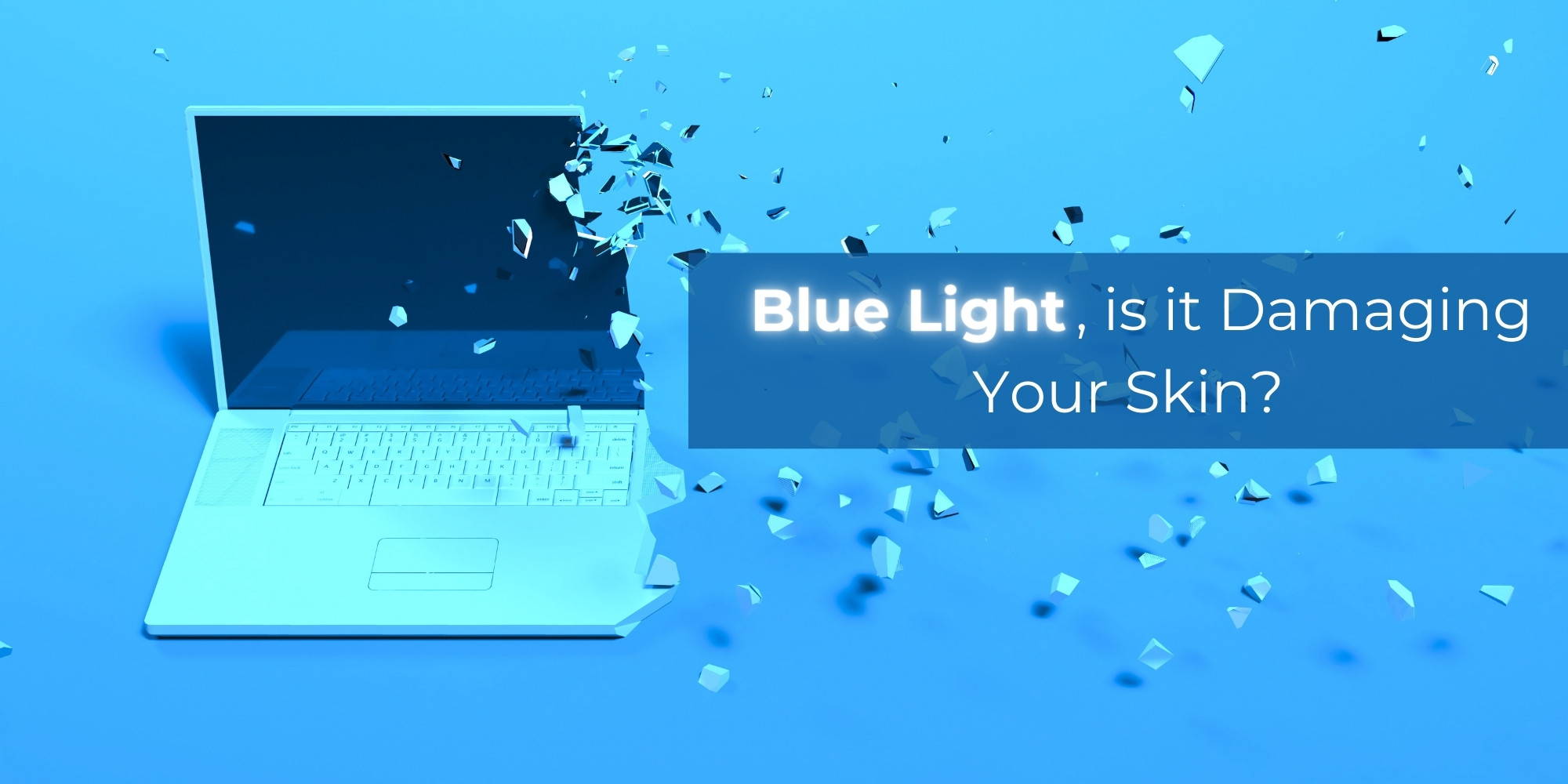Is Blue Light Damaging Your Skin

Enter the Digital World
Screens have become an integral part of our lives, from both social and work aspects. All of our daily activities previously carried out manually, have now taken digital form.
The days of newspapers are coming to an end (if not already), being overtaken by the digital glow of our screens from TVs to cell phones. The unavoidably consume a large part of our day.
Even grocery shopping has taken on a digital form. Swiping and scrolling for long periods of time can have a significant adverse effect on your skin, eyes, brain and mood. For this article, we'll stick to your skin, how its affected, how you can minimize the damage and restore your skin's natural, healthy glow.
What is Blue Light?
Blue light refers to a high-energy, short-wavelength light on the visible light spectrum, typically emitted by the sun, electronic devices (such as smartphones, tablets, and computers), and certain artificial light sources. Blue light has gained attention in recent years due to its potential effects on the skin and health.
How Does Blue Light Damage Your Skin?
When it comes to the skin, blue light can penetrate deeper than UVA and UVB rays, reaching the dermis layer.
Research suggests that exposure to blue light may contribute to skin damage by generating reactive oxygen species (ROS), which can lead to oxidative stress. This oxidative stress can trigger inflammation and damage collagen and elastin, essential components for maintaining skin elasticity and firmness.
Over time, this can contribute to premature skin aging, such as wrinkles, fine lines, and sagging.
Blue light destroys collagen in your skin, which can speed up your aging process and cause wrinkles on the surface of your skin. Exposure to blue light for longer periods, especially at night, can trigger and shrink the cells of your skin.
How to Protect Your Skin from Blue Light Damage Caused by Electronic Devices?
Now that you know how negatively blue light can affect your skin, let's see how you can protect your skin against it.
- Reduce Screen Time
Unfortunately, the first thing many people do the moment they wake up... is grab their cell phone. Often times, it's also the last thing used just before going to bed. Avoid exposure to blue light from devices for at least an hour before bedtime to support healthy sleep patterns and reduce the amount of time you spend in front of electronic devices, especially during prolonged periods. - Get Blue Light Screen Filters
Blue light screen filters protect your skin against unnatural sources of blue light such as electronic devices. These filters decrease the amount of blue light emitting from your device. Blue light filters are easily available for laptops, tablets, computers, and cell phone screens. - Consider Antioxidant Skin Care
Antioxidants can help counteract the effects of free radicals generated by blue light exposure. Look for skin care products that contain powerful ingredients like sea buckthorn to scavenge free radicals and help boost collagen production. Don't forget, internal support is just as important to reduce skin damaging free radicals.
Remember, while these measures can help minimize potential blue light damage, they should be combined with a holistic approach to overall skin health, including a balanced diet, regular exercise, and sufficient rest. If you have specific concerns, consult a dermatologist or skincare professional for personalized advice.
Using creams and serums that can rejuvenate and nourish your skin is also beneficial. Try products like our SIBU Hydrating Facial Serum to protect your skin from premature aging and wrinkles that can be accelerated due to blue light damage.
